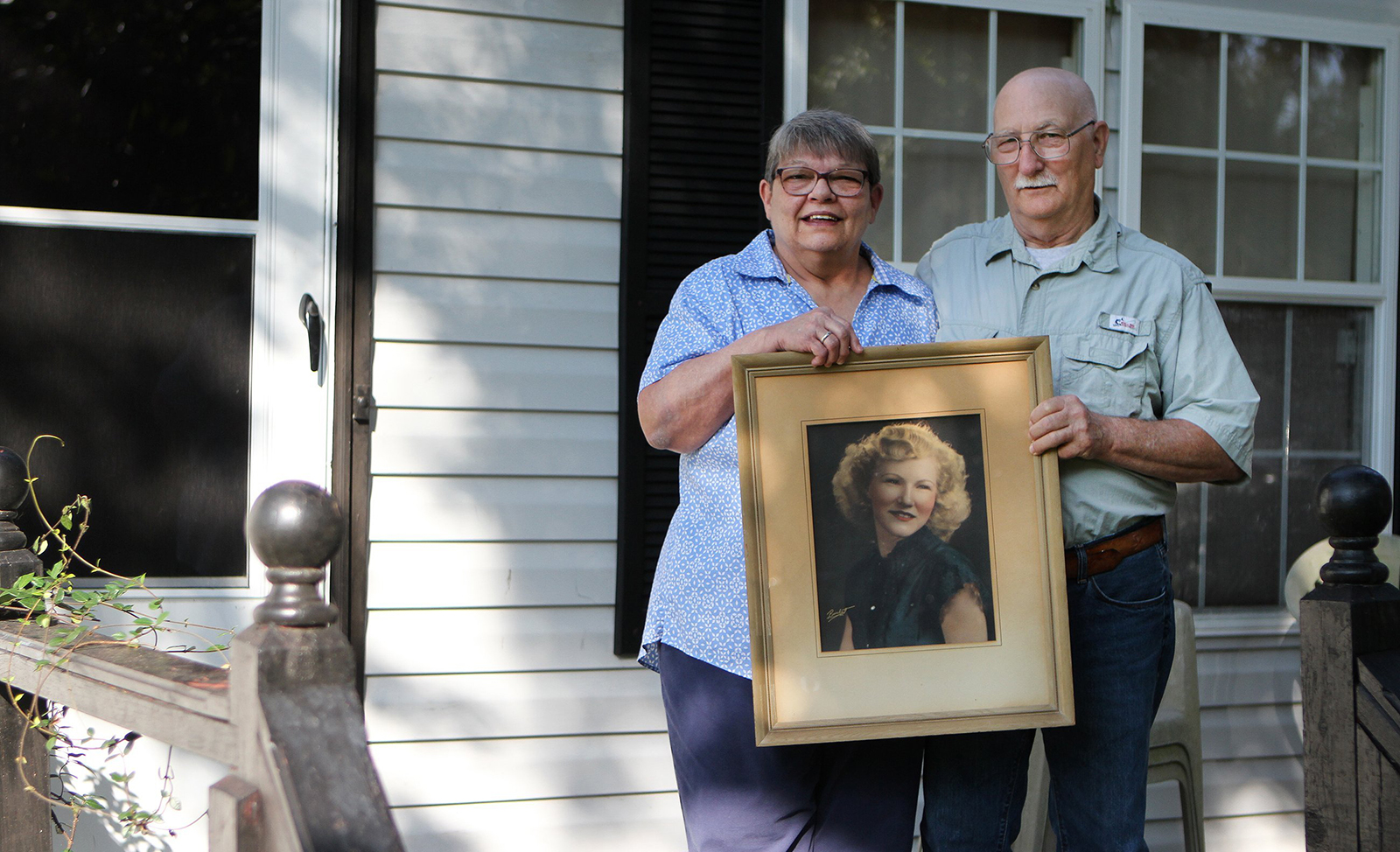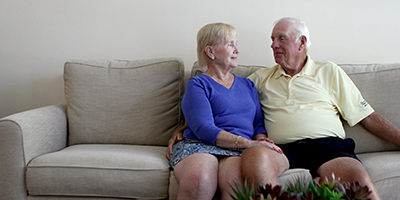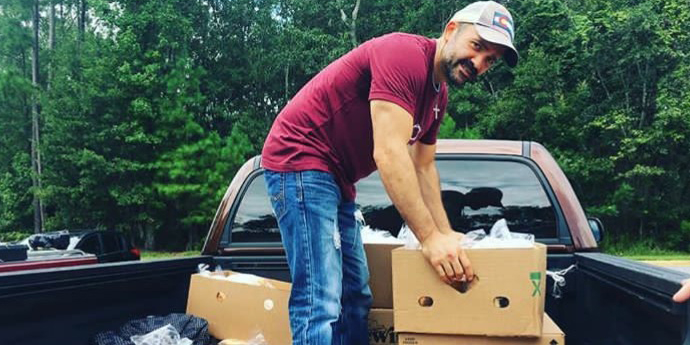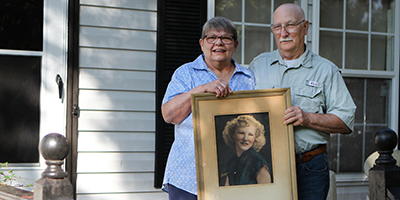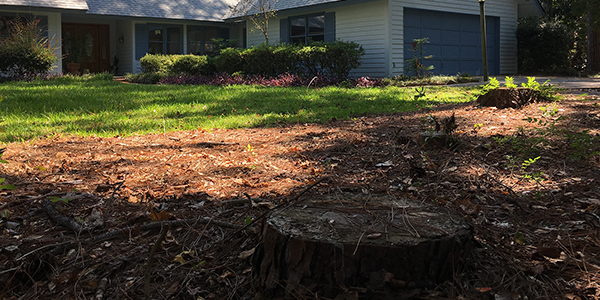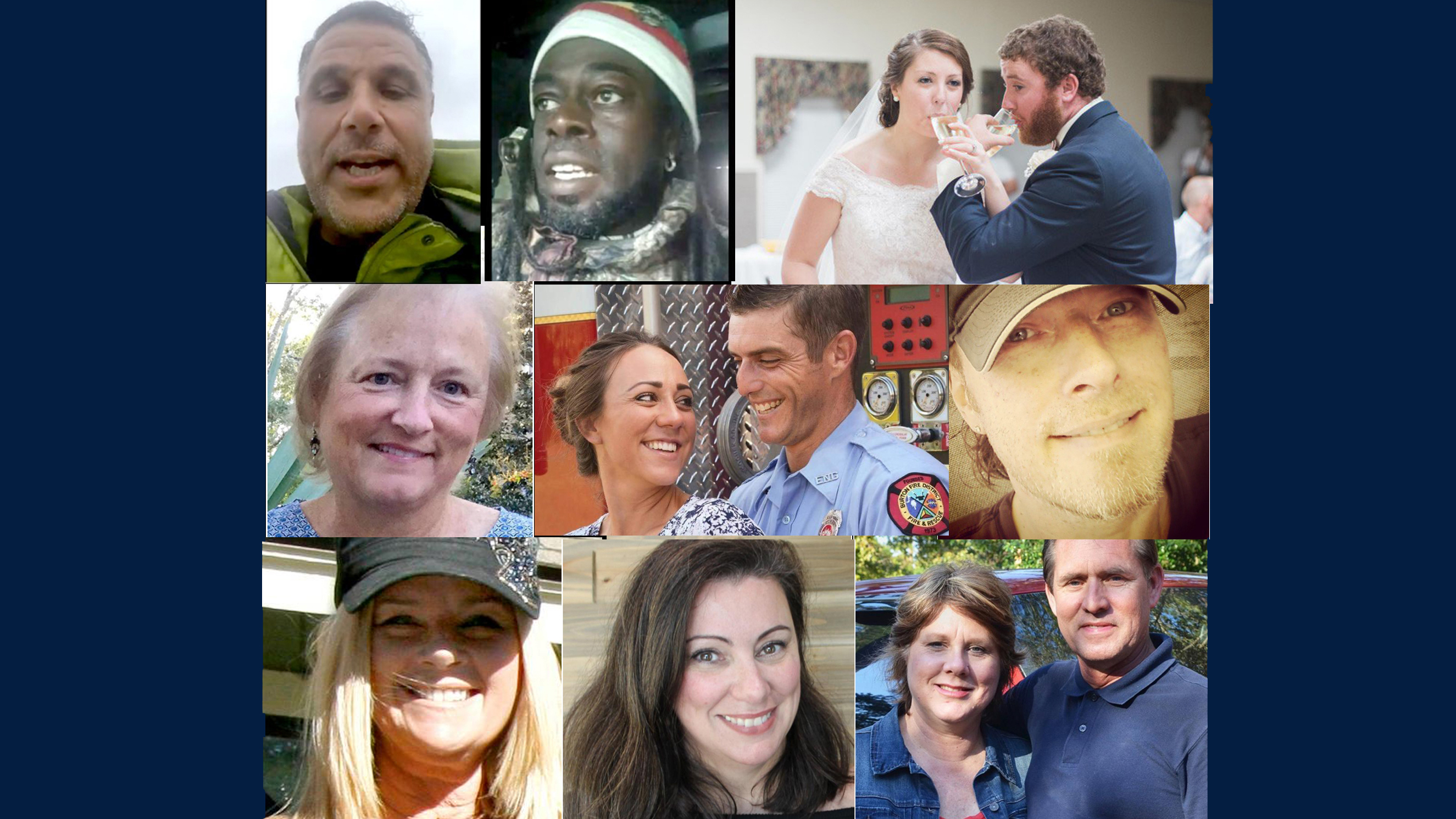It would be — if it happened — a “direct burial,” as it’s called at Beaufort National Cemetery.
A procedure reserved for cremated remains.
No formal graveside service.
Simply, the act of laying someone to rest.
“If it’s a small group of people (at a burial), we’ll invite the individual’s family to participate, if they so desire,” cemetery representative Louis Brown recently said, explaining that he and his staff will offer the shovel to a loved one, who might spread the first bit of dirt over an urn before it’s buried beneath a neat square of grass.
Mamie Edwards’ was the only burial scheduled on this morning, Wednesday, Oct. 5, 2016 — the day some of Beaufort County’s roadways were reversed to run away from the storm that churned near Cuba and continued tracking toward the Southeastern U.S., where it would ride the coast like a pinball on a rail, eventually careening past the county as a Category 2 event.
Hurricane Matthew wouldn’t arrive for three more days, but then-S.C. Gov. Nikki Haley had already ordered an evacuation of the state’s coastal counties. Winds ahead of the storm gusted above 20 miles per hour and tossed Spanish moss from trees. The sky was gray.
Bobby Edwards Jr., then a sergeant with the Beaufort County Sheriff’s Office, had made the arrangements for his mother a month earlier. As Matthew neared, he thought the burial might be canceled. And outside of his Shell Point home, as he packed his patrol car with clothes and gear and Meals-Ready-to-Eat, he worried there would be one more thing to worry about.
He already feared for Patty, his wife, who’d decided not to evacuate. He was concerned about their property. And now, it appeared, he’d be worried about his mother’s ashes, which rested in a plastic box that bore her name and sat inside a red bag on a chair near a sewing cabinet in the spare room.
Soon, he would report for duty. Then, he would be at the mercy of orders from his superiors. And they would all be at the mercy of the storm, which everyone hoped would have mercy on the Lowcountry, which was still within the National Hurricane Center’s cone of uncertainty.
The only thing he was certain of was the gear he’d packed; most everything else felt beyond his control.
The house phone rang, and Patty answered it.
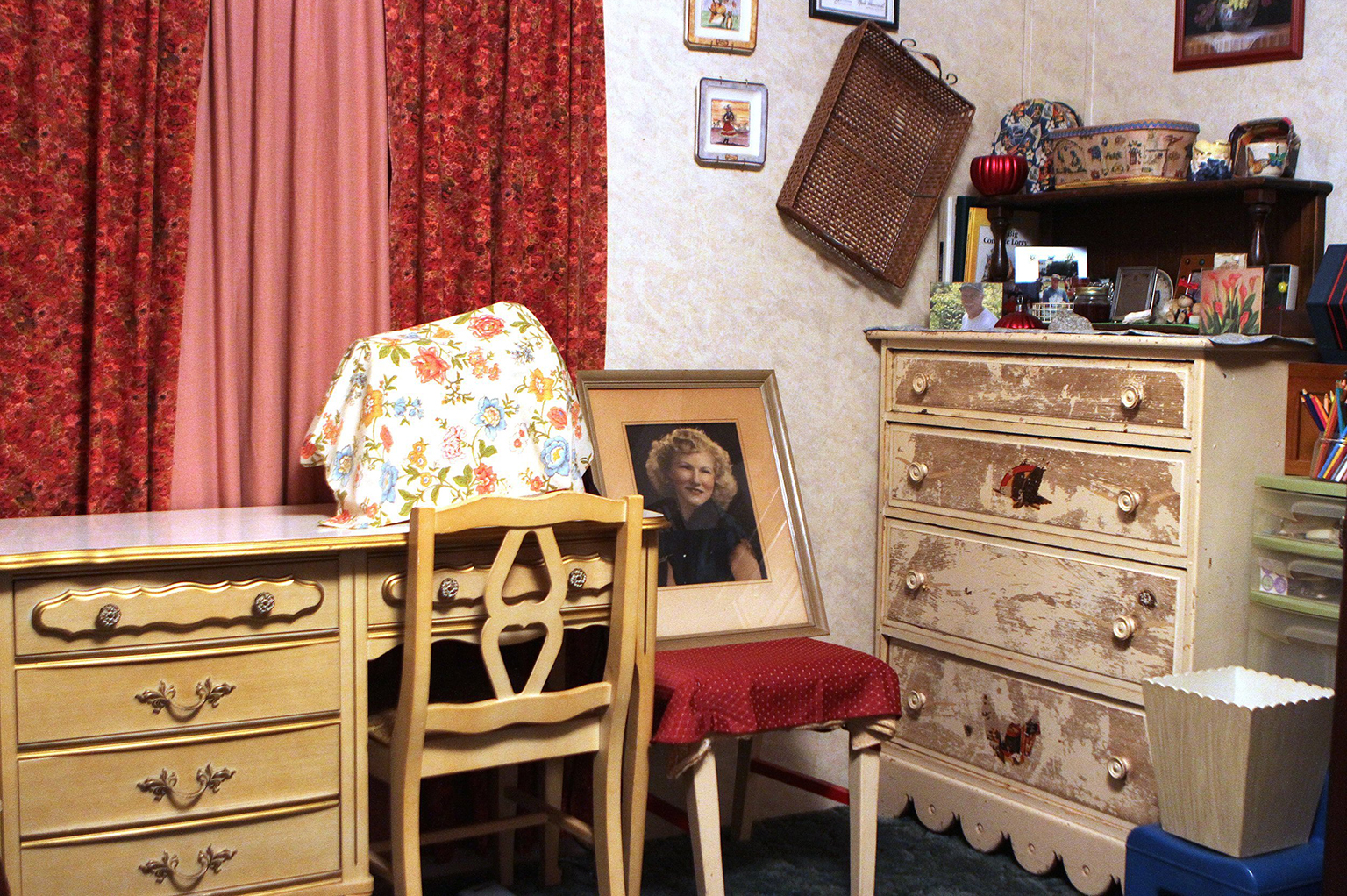
Before Mamie Edwards' ashes were interred at Beaufort National Cemetery, her son, Bobby Edwards, kept them on a chair in the room where she lived with him and his wife, Patty, before she died. [Delayna Earley, staff photo]
Mamie Edwards had died in that house almost six months earlier. She was 90. She’d been singing to Patty and a Hospice nurse an hour before she passed.
It had taken doctors about a year to diagnose her with Alzheimer's. She lived with the disease for several more and, near the end, survived a bout of pneumonia. After a weeks-long hospital stay and physical rehabilitation, she wanted to come home. She did, and lived a few more months.
“I made a promise a long time ago I was going to take care of both of them,” Bobby said of his parents. “I already took care of Pops; now, it was her time.”
“She was 4-foot-11,” he continued. “And about 30 pounds of dynamite.”
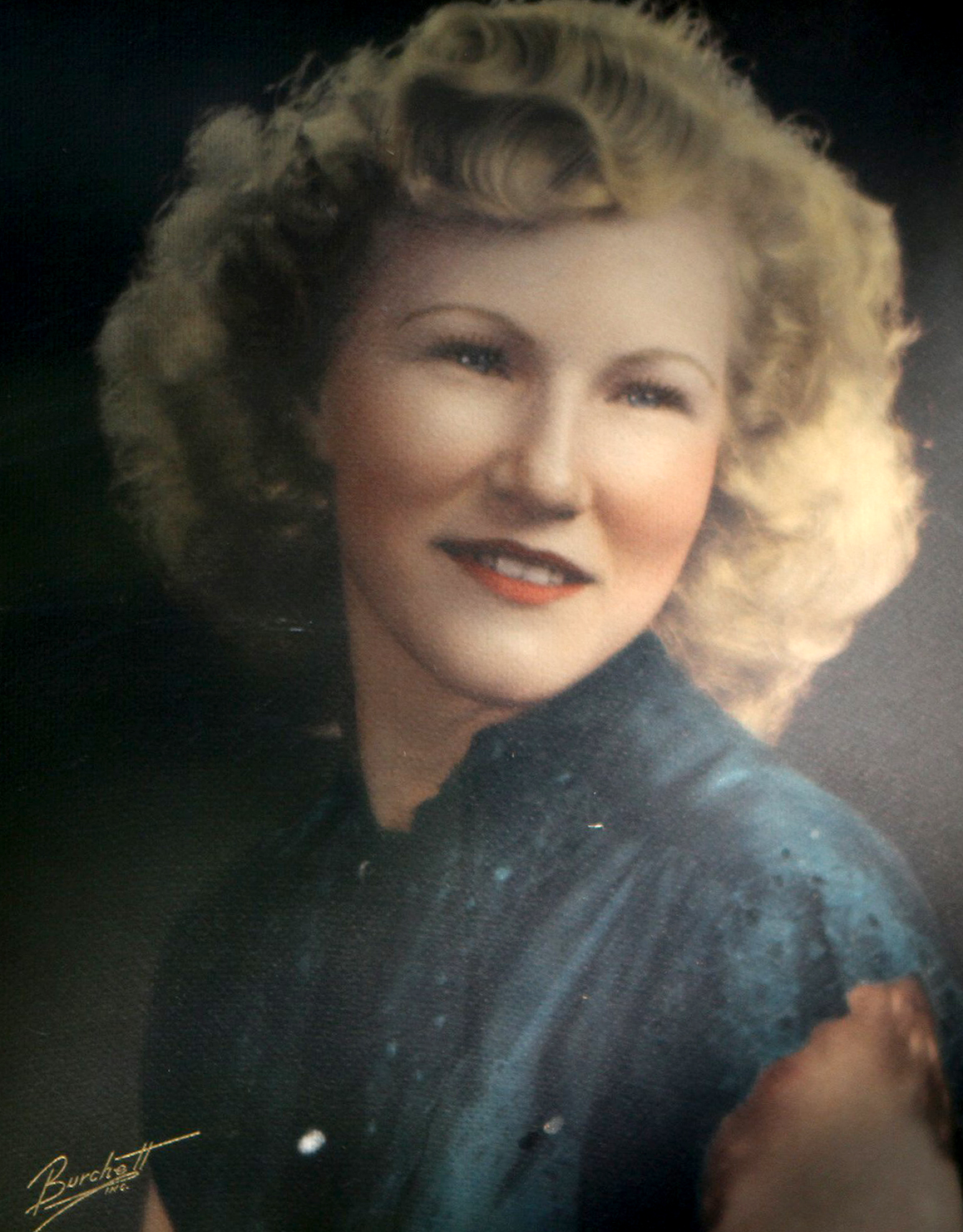
A young Mamie Edwards. [Delayna Earley, staff photo]
She was a Walmart greeter. She drove a Beaufort County school bus for 19 years, sitting atop two pillows so she could see over the steering wheel. And there’s a story about her as a younger woman working at her family’s Illinois restaurant-and-bar, telling a big farm boy, who’d had a few too many, to leave. He’d listened.
Like her son, she’d weathered hurricanes in the Beaufort area.
Her husband, a U.S. Navy corpsman and veteran of Korea and World War II, worked at Marine Corps Recruit Depot Parris Island, and that's where the family weathered Hurricane Gracie in 1959.
In 1995, after serving in the Navy himself and deploying to the Mediterranean during Vietnam, Bobby got a job with the Sheriff’s Office and worked emergency shifts during storms.
He was usually tasked with securing court files on Hilton Head Island ahead of a storm, then escorting a judge back to the island afterward.
His mother died on Wednesday, April 6, 2016. He was the executor of her will. Three days later, Anderson Funeral Home hosted a service in her honor.
Like her husband before her, she’d chosen to be cremated. Her ashes were to be interred alongside his at Beaufort National Cemetery.
In September 2016, he met with cemetery staff and scheduled her burial for the first Wednesday in October.
It was set for 10 a.m.
Patty Edwards answered the phone around 8 a.m. that morning.
On the other end of the line, a man from Beaufort National Cemetery asked her a question.
“He asked if we could come right down,” she said. “I told him we just live about 10 minutes away.”
The Edwards drove Mamie’s old car — a Chrysler PT Cruiser, which the veteran bus driver couldn’t operate in her later years as her eyesight failed. They carried her ashes. They arrived at the cemetery and eased toward Section 40, Site 56.
A mound of dirt rested near a neat square cut into the grass. Bobby placed his mother’s ashes into the earth. A cemetery staffer asked if he’d like to spread the first shovelful of dirt over the urn.
He did. He said a prayer. He thanked the cemetery workers, themselves soon to evacuate.
“Coming up to a storm, our primary goal is to protect the vets and their families,” Louis Brown, himself an Army veteran, recently said. “And if anything’s already scheduled, we’ll do what we can to make it happen.”
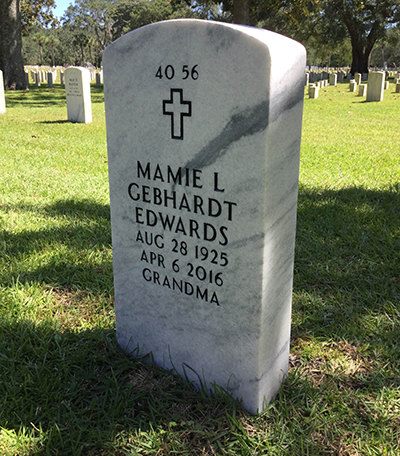
Mamie Edwards' grave marker at Beaufort National Cemetery. [Wade Livingston, staff photo]
Mamie Edwards was the last person buried in Beaufort National Cemetery before Hurricane Matthew.
She lies next to her husband. The couple shares a headstone, his name on one side, hers on the other. “Grandpa” and “Grandma.”
“It meant a lot to (Bobby),” Patty said. “It was very important putting his mother where she needed to be. ... It was a job that needed to be done before he went to work.”
After the burial, Bobby Edwards drove to Sheriff’s Office headquarters in Beaufort. During the storm, he would guard county buildings. After it, he would patrol the northern part of the county, a friendly presence on the roads. He retired eight months later, after 22 years with the department.
Recently, he reflected on the burial, what it meant to him: one of the few things he was able to control that day; the sense of relief it brought; the fact that he could worry about one less thing.
On that day, he knew his mother’s remains were safe.
He knew his parents were together.
And he knew he had a job to do.
Wade Livingston: 843-706-8153, @WadeGLivingston
